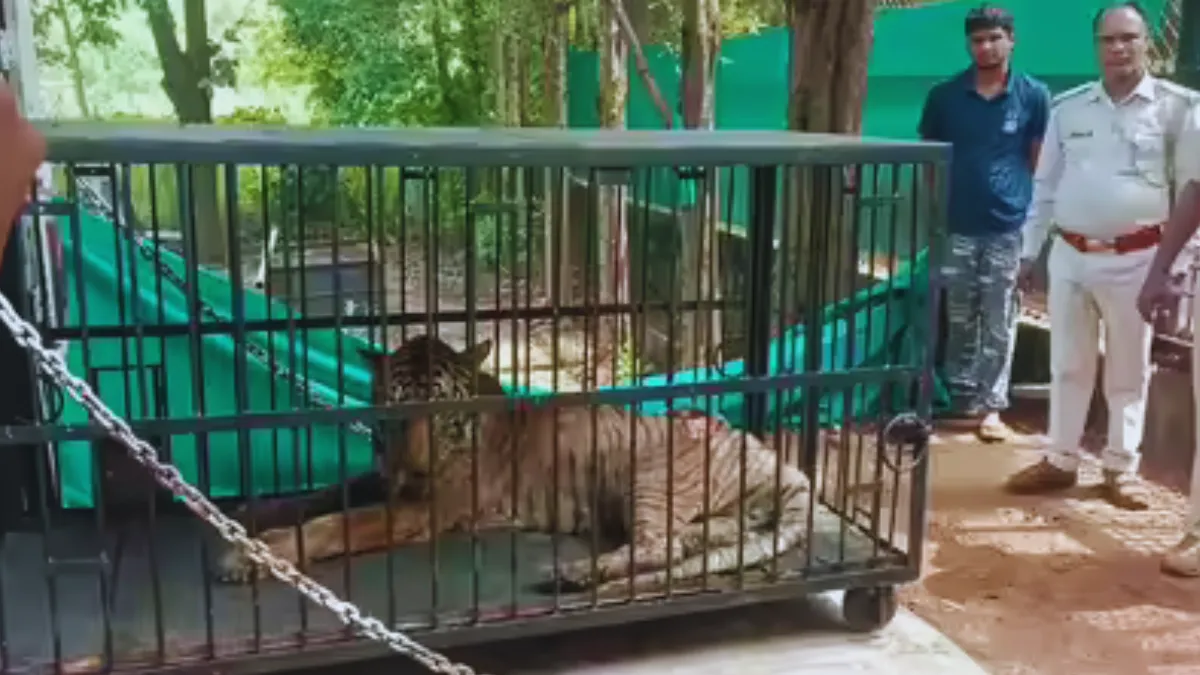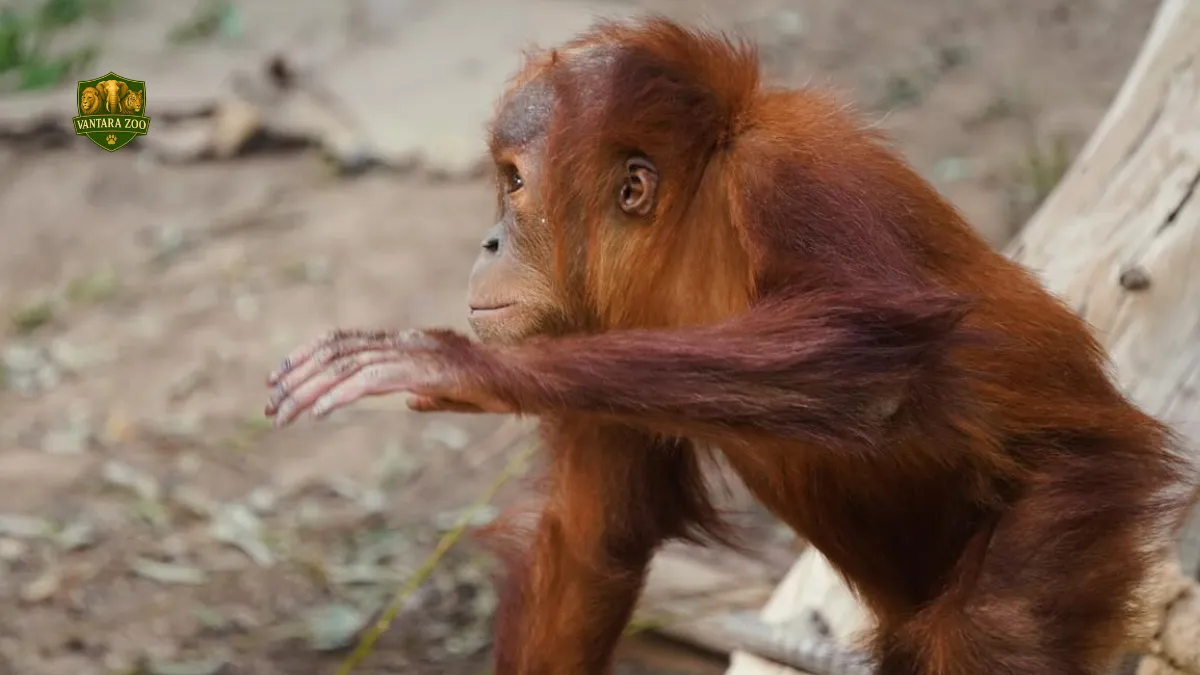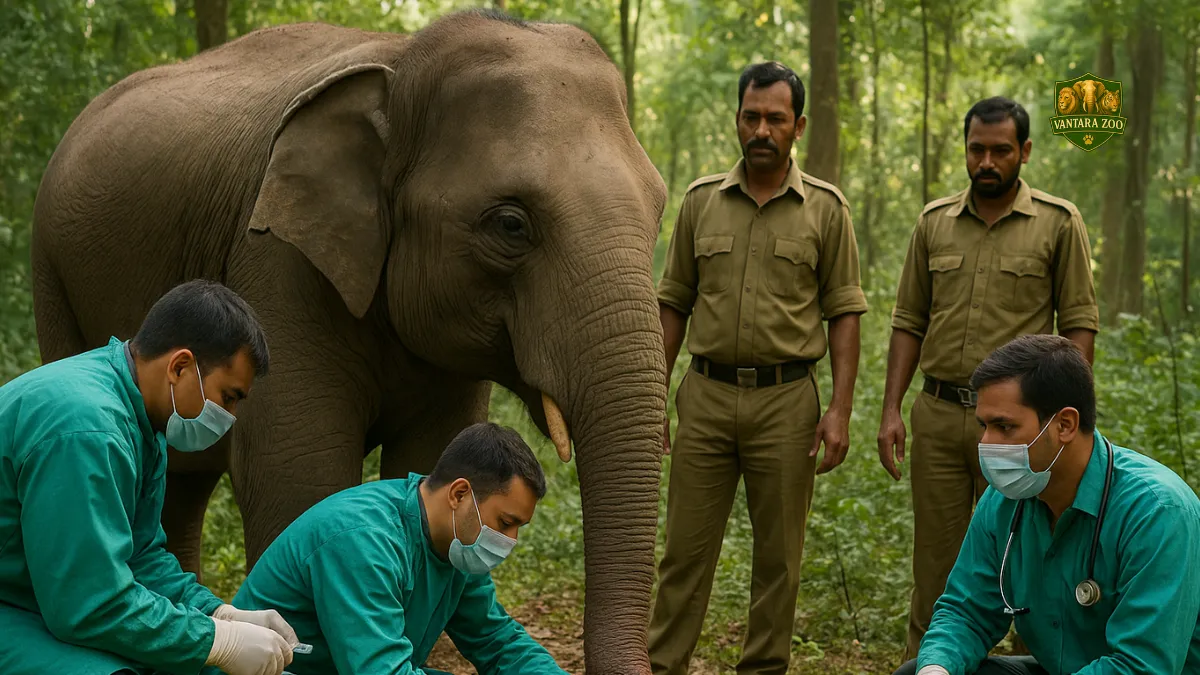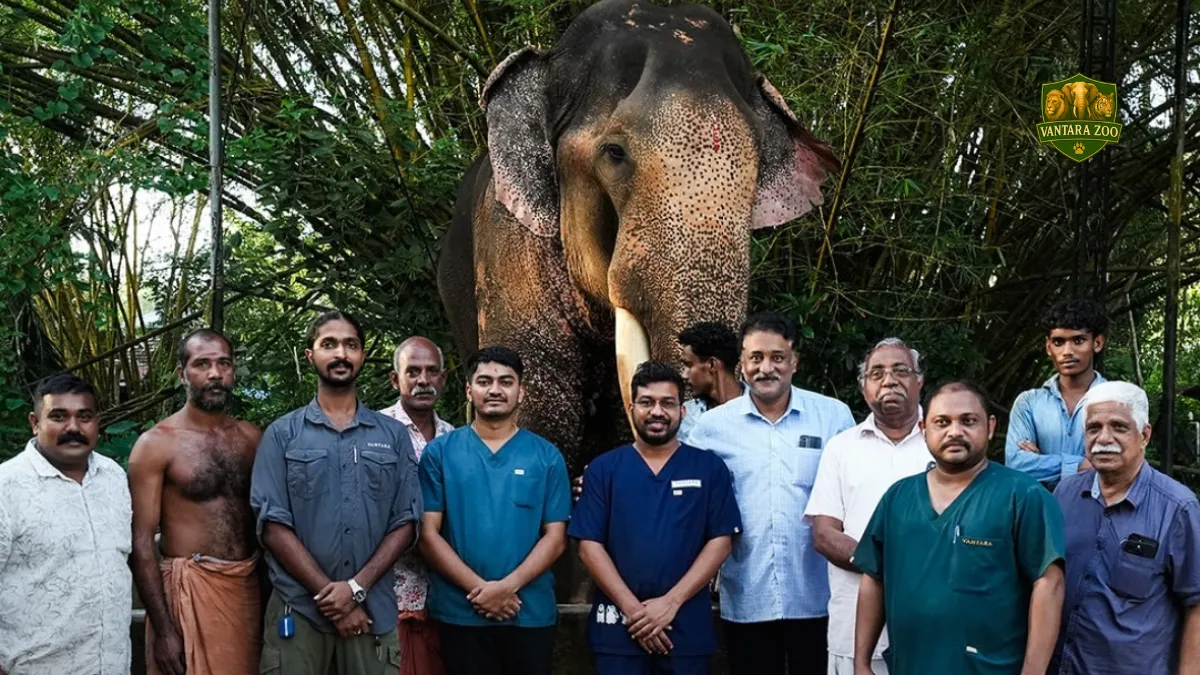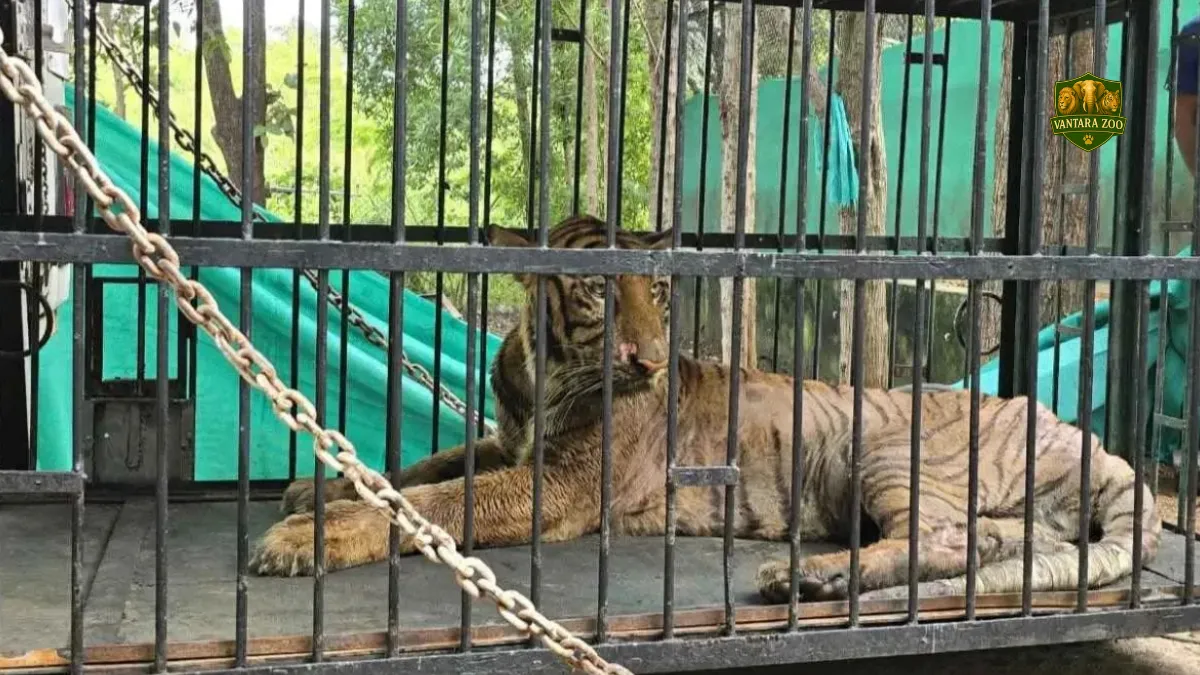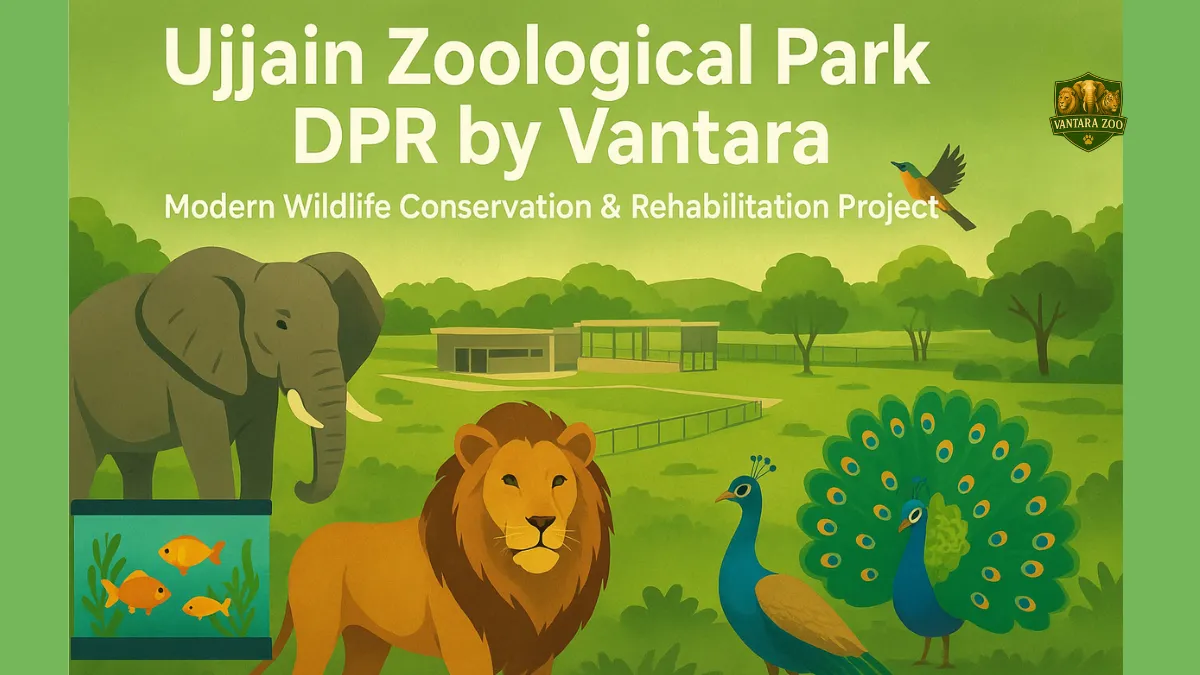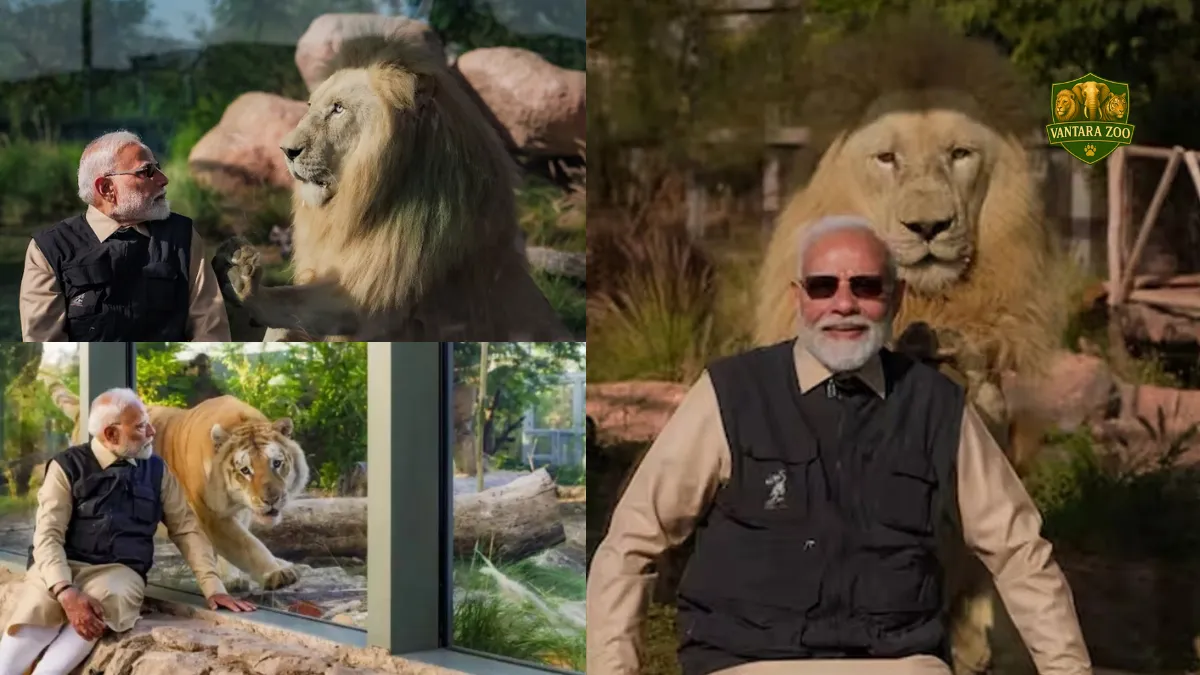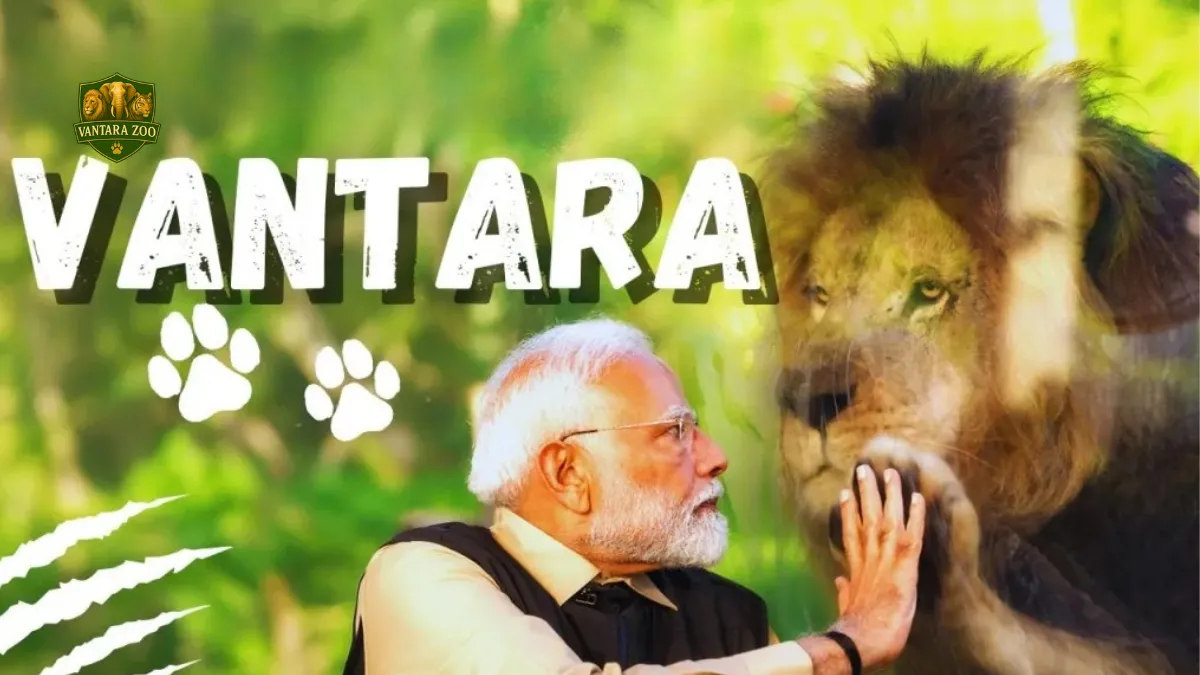Vantara, Gujarat: In a significant move for wildlife healthcare, the eight-year-old Royal Bengal tigress ‘Bijli’ from Chhattisgarh’s Nava Raipur Jungle Safari was transferred to the Vantara Animal Rescue and Care Center in Jamnagar, Gujarat, on Tuesday. The tigress had been unwell for several weeks, and local medical facilities in Chhattisgarh were insufficient to manage her complex health issues.
Early Signs of Illness
Bijli began showing symptoms of reduced appetite and lethargy from August 22. Initial examinations included blood tests and physical assessments. Blood reports indicated elevated creatinine and urea levels, suggesting potential kidney problems.
Further investigations, including abdominal ultrasonography, revealed mild hydronephrosis and signs of possible pyelonephritis. Although initial tests suggested a hemoprotozoan infection, PCR analysis ruled out this possibility.
The early identification of these symptoms was crucial, as tigresses in the wild are highly sensitive to kidney and urinary tract disorders, which, if untreated, can become life-threatening.
Need for Advanced Treatment
Wildlife experts and a specialized medical committee recommended that Bijli undergo cystoscopy, endoscopy, and advanced imaging procedures, all of which were unavailable in Chhattisgarh. Considering the tigress’s deteriorating condition, authorities decided to transfer her to Vantara Animal Rescue and Care Center, known for its state-of-the-art wildlife medical facilities.
During the transfer, a team of wildlife veterinarians and caretakers accompanied Bijli to ensure her safety and minimize stress. The journey was meticulously planned, considering the tigress’s fragile health.
Bijli’s Family in Safe Hands
Bijli is the mother of four cubs, including a 1.5-year-old female tiger, all of whom remain safe and healthy at the Jungle Safari in Chhattisgarh. Officials confirmed that the cubs are under continuous monitoring and are in normal, stable condition.
Once Bijli completes her treatment at Vantara, she will be returned to her natural habitat, ensuring the family remains intact. This careful planning highlights the commitment of wildlife authorities to both treatment and conservation.
Also read: Wild Elephant Injured in Suspected IED Blast in Saranda, Vantara Team Steps In for Rescue
Implications for Wildlife Healthcare in Chhattisgarh
The tigress’s transfer underscores a significant challenge for Chhattisgarh’s wildlife healthcare system. The state currently lacks advanced veterinary facilities and specialized wildlife doctors, especially for critical illnesses like kidney failure or urinary tract infections in big cats.
The Chhattisgarh Forest Department has stated that future plans include expanding medical infrastructure and recruiting specialized wildlife veterinarians. The goal is to provide timely and effective treatment for wildlife within the state, reducing the need for long-distance transfers.
Role of Vantara Animal Rescue Center
Vantara has become a critical hub for wildlife medical care in India. Equipped with advanced diagnostic tools and expert veterinary teams, the center can handle complex cases that smaller facilities cannot manage.
Bijli’s treatment at Vantara involves detailed monitoring, advanced imaging, and potential surgical interventions if required. Experts at the center emphasize that early intervention is key to recovery for critically ill wild animals.
Also read: The Incredible Sadhu Story: How Vantara Saved Kerala’s Iconic Elephant from the Jaws of Death
Future Plans and Conservation Efforts
Bijli’s case is a reminder of the importance of proactive healthcare for wildlife. Authorities hope that by learning from this experience, Vantara and other centers can guide improvements in local medical care for wild animals.
Long-term plans include:
- Expansion of wildlife medical facilities in Chhattisgarh
- Training programs for wildlife veterinarians
- Establishment of emergency medical protocols for sick or injured animals
- Strengthening collaboration between states for wildlife healthcare
These steps are aimed at ensuring that every animal, from tigers to smaller wildlife, receives the care they need without unnecessary delays.
Also read: Vantara Animal Rescue Centre: A Sanctuary of Hope for India’s Wildlife
Conclusion
The transfer of the Royal Bengal tigress Bijli to Vantara Animal Rescue Center highlights the critical need for timely and advanced treatment for wildlife. This initiative not only saves Bijli’s life but also sets a precedent for improving wildlife healthcare infrastructure in Chhattisgarh.
By combining expert veterinary care, state-of-the-art medical facilities, and careful monitoring, Vantara continues to play a pivotal role in the conservation of India’s wildlife. This case serves as an important reminder that the survival and wellbeing of endangered species rely heavily on proactive, compassionate, and expert-driven medical intervention.
With Bijli’s recovery underway, authorities are optimistic that such efforts will pave the way for a healthier future for wildlife across the region, ensuring that both mother and cubs thrive in their natural habitat.
